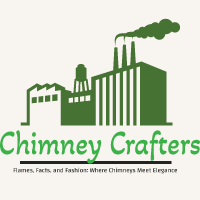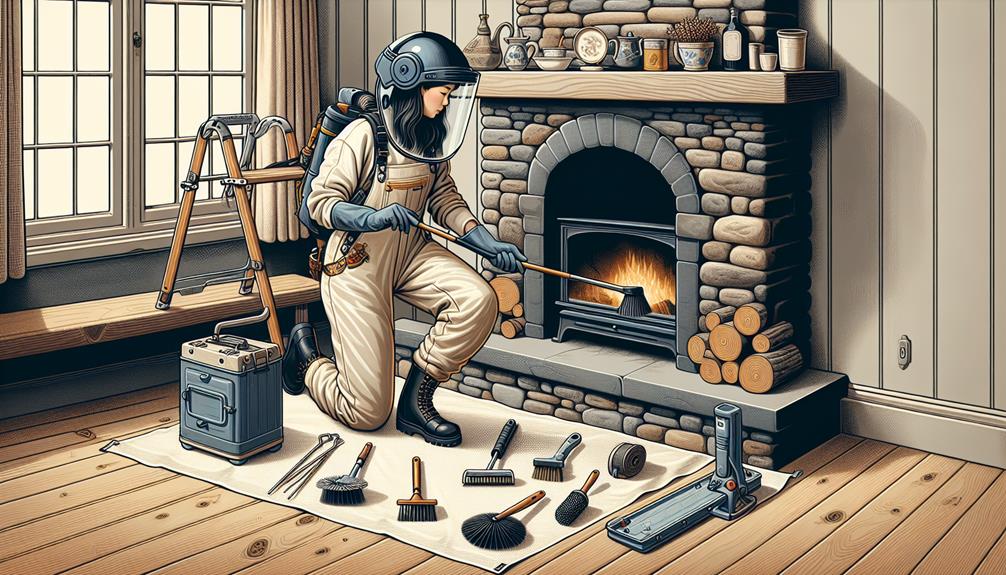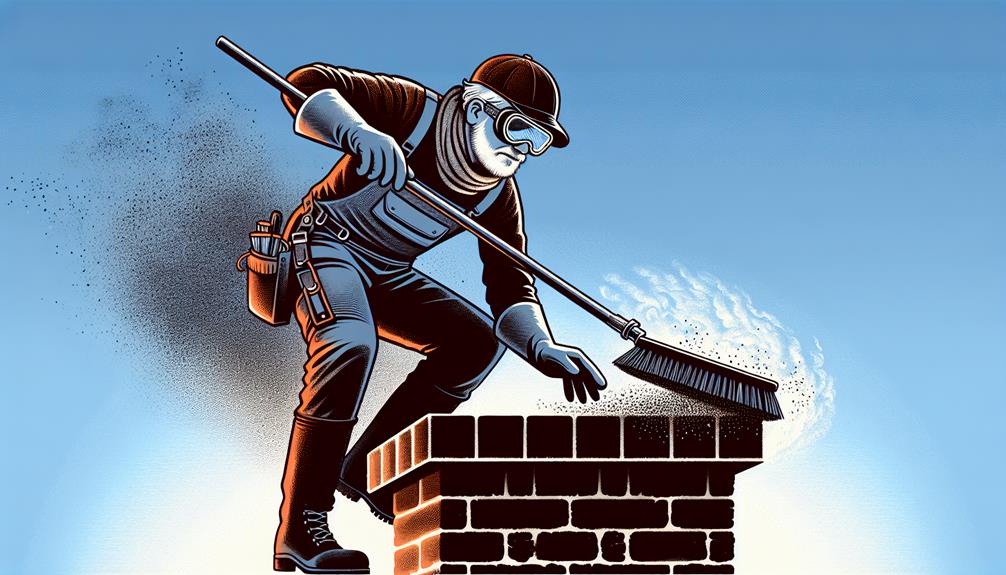Chimney liners need regular sweeping to ensure safety and efficiency. Neglecting this maintenance can lead to hazards that affect your home.
Sweeping keeps the chimney clear and helps your fireplace work well.
Importance of Sweeping Chimney Liners
Cleaning your chimney liners regularly is crucial for keeping your fireplace safe and efficient. When you don’t clean them, a sticky substance called creosote can build up. Creosote is flammable and can cause chimney fires. By having your chimney liners cleaned regularly, you can prevent creosote buildup and reduce the risk of fires in your home.
Proper airflow and the smooth operation of your chimney rely on regular cleaning of the chimney liners. If creosote builds up, it can block airflow and increase the chance of a fire. Professional chimney sweeps know how to clean chimney liners effectively, getting rid of soot, debris, and anything else that could make your chimney unsafe. By keeping your chimney liners clean, you create a safer environment in your home and ensure that your fireplace or heating system works well.
Risks of Neglecting Chimney Maintenance
Neglecting chimney maintenance can lead to serious problems for your home. If you don’t clean your chimney regularly, a dangerous substance called creosote can build up, which can cause chimney fires. Also, if your chimney is blocked, it can’t let out harmful gases like carbon monoxide, putting you at risk of poisoning.
Sweeping the chimney liner is important to prevent corrosive acids from damaging it over time, which can lead to safety issues. Regular maintenance keeps your chimney working well, prevents fires, and keeps your home safe.
Don’t ignore chimney care; it’s crucial for a safe and efficient home for you and your family.
Benefits of Regular Chimney Cleaning
Regular chimney cleaning is important for keeping your fireplace safe and efficient. Here are the main benefits:
- Preventing Chimney Fires: Cleaning removes creosote buildup, which can cause dangerous fires.
- Ensuring Proper Airflow: Regular cleaning keeps airflow smooth and helps your fireplace work well.
- Extending the Lifespan of Chimney Liners: Cleaning protects liners from damage, making them last longer.
- Recommended by Fire Safety Agencies: Experts advise yearly cleaning for safety, especially for wood-burning fireplaces.
Signs Your Chimney Liner Needs Sweeping
If you see black tar-like buildup on your chimney liner, it means it needs cleaning. Creosote is dangerous because it can catch fire easily.
If your chimney has less airflow, it might need sweeping to prevent smoke from entering your home. Weird smells or smoke inside are signs your chimney liner needs cleaning.
If you see a lot of black dust in your fireplace, it’s time for a sweep. Also, if you notice anything blocking the chimney, get it cleared to avoid problems.
Regular checks by a chimney expert can catch these issues early and save you money. A clean chimney liner not only keeps you safe but also helps your chimney work better and last longer.
Professional Chimney Sweep Services
To keep your chimney liner safe and working well, you need professional chimney sweep services.
Chimney sweeps are trained experts who know all about chimneys and can find any problems. They use special tools to clean out creosote and dirt, which helps your chimney work better.
Frequency of Chimney Liner Cleaning
To keep your chimney safe and working well, remember to clean the stainless steel liner regularly. It’s best to sweep it at least once a year to prevent dangerous creosote buildup. If you use the chimney a lot or burn wet wood, consider cleaning it two to four times a year.
Regular cleaning is important to avoid chimney fires and ensure good airflow. Sweeping the liner removes debris and creosote that can block the chimney. If you skip cleaning, your chimney may become less efficient, unsafe, and need costly repairs.
Stay on top of cleanings to maintain a safe and efficient chimney system at home.
Frequently Asked Questions
Does a Chimney With a Liner Need to Be Cleaned?
You need to clean your chimney with a liner regularly to prevent fire risks. Creosote buildup, blockages, and airflow issues can occur if not cleaned. Keeping it clean ensures safety, efficiency, and proper operation of your chimney.
How Often Should You Sweep a Lined Chimney?
Sweep a lined chimney once a year. For high-efficiency wood stoves, sweep it up to four times annually. This keeps your chimney safe and efficient.
Does a Flue Liner Need to Be Swept?
To keep your chimney safe and efficient, make sure to clean it regularly. Creosote buildup can cause chimney fires, so it’s important to remove soot and debris that can block airflow. Schedule annual chimney sweeps with professionals to prevent fires and carbon monoxide exposure.
How to Clean Chimney Liners?
To clean chimney liners, use polypropylene brushes. This helps remove creosote buildup, which can cause fires and block proper airflow. Avoid using metal brushes, as they can damage the chimney liner. It’s recommended to have annual inspections by professional chimney sweeps to ensure everything is in good condition.
Conclusion
Regular chimney liner sweeping is essential for keeping your home safe and efficient. Neglecting chimney maintenance can lead to serious risks, so it’s important to schedule professional cleanings and stay on top of regular maintenance.
By doing this, you can prevent safety hazards and ensure your chimney works properly. Make sure to prioritize chimney maintenance to keep your home cozy and safe.











